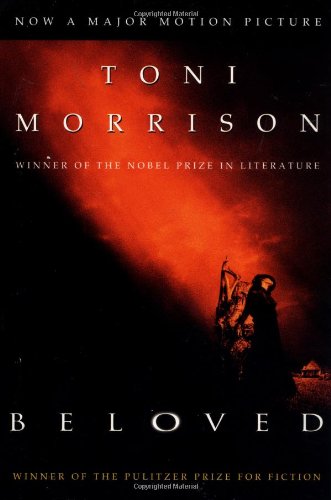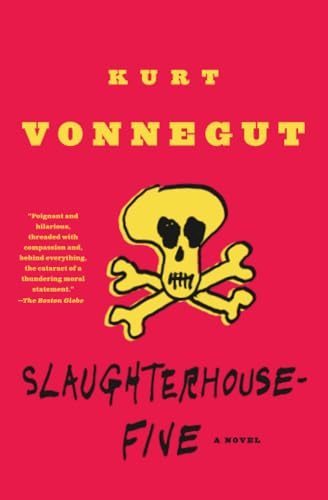AP Lit&Comp Reading List
Explore the essential AP Literature & Composition reading list with must-read books to ace your exam. Discover classic and contemporary works for a comprehensive study guide.

Book
Brave New World
by Aldous Huxley
Huxley's story shows a futuristic World State where all emotion, love, art, and human individuality have been replaced by social stability. An ominous warning to the world's population, this literary classic is a must-read.

Book
Nineteen Eighty-four
by George Orwell
Eternal warfare is the price of bleak prosperity in this satire of totalitarian barbarism.

Book
The Importance of Being Earnest
by Oscar Wilde
This Prestwick House Literary Touchstone Edition includes a glossary and reader!=s notes to help the modern reader appreciate Wilde's wry wit and elaborate plot twists.Oscar Wilde's madcap farce about mistaken identities, secret engagements, and lovers? entanglements still delights readers more than a century after its 1895 publication and premiere performance. The rapid-fire wit and eccentric characters of The Importance of Being Earnest have made it a mainstay of the high school curriculum for decades.Cecily Cardew and Gwendolen Fairfax are both in love with the same mythical suitor. Jack Worthing has wooed Gewndolen as Ernest while Algernon has also posed as Ernest to win the heart of Jack's ward, Cecily. When all four arrive at Jack's country home on the same weekend'the "rivals" to fight for Ernest's undivided attention and the "Ernests" to claim their beloveds'pandemonium breaks loose.Only a senile nursemaid and an old, discarded hand-bag can save the day


Book
Beloved
by Toni Morrison
Sethe. Proud and beautiful, she escaped from slavery but is haunted by its heritage - from the fires of the flesh to the heartbreaking challenges to the spirit.
Item Not Found
ID: 0140441468
(Type: books)

Book
Pride and Prejudice
by Jane Austen
Nominated as one of America’s best-loved novels by PBS’s The Great American Read “It is a truth universally acknowledged, that a single man in possession of a good fortune must be in want of a wife.” So begins Pride and Prejudice, Jane Austen’s witty comedy of manners—one of the most popular novels of all time—that features splendidly civilized sparring between the proud Mr. Darcy and the prejudiced Elizabeth Bennet as they play out their spirited courtship in a series of eighteenth-century drawing-room intrigues. Renowned literary critic and historian George Saintsbury in 1894 declared it the “most perfect, the most characteristic, the most eminently quintessential of its author’s works,” and Eudora Welty in the twentieth century described it as “irresistible and as nearly flawless as any fiction could be.”


Book
Jude the Obscure
by Thomas Hardy
"I’m an outsider to the end of my days!" Jude Fawley’s hopes of a university education are lost when he is trapped into marrying the earthy Arabella, who later abandons him. Moving to the town of Christminster where he finds work as a stonemason, Jude meets and falls in love with his cousin Sue Bridehead, a sensitive, freethinking "New Woman." Refusing to marry merely for the sake of religious convention, Jude and Sue decide instead to live together, but they are shunned by society and poverty soon threatens to ruin them. Jude the Obscure, Hardy’s last novel, caused a public furor when it was first published, with its fearless and challenging exploration of class and sexual relationships. This edition uses the unbowdlerized text of the first volume edition of 1895, and also includes a list for further reading, appendices and a glossary. In his introduction, Dennis Taylor examines biblical allusions and the critique of religion in Jude the Obscure, and its critical reception that led Hardy to abandon novel writing. For more than seventy years, Penguin has been the leading publisher of classic literature in the English-speaking world. With more than 1,700 titles, Penguin Classics represents a global bookshelf of the best works throughout history and across genres and disciplines. Readers trust the series to provide authoritative texts enhanced by introductions and notes by distinguished scholars and contemporary authors, as well as up-to-date translations by award-winning translators.

Book
A Prayer for Owen Meany
by John Irving
A story of friendship through adversity, faith and destiny, and the search for God.

Book
Awakening
by Kate Chopin
"She grew daring and reckless. Overestimating her strength. She wanted to swim far out. Where no woman had swum before."

Book
The Color Purple
by Alice Walker
Set in the period between the world wars, this novel tells of two sisters, their trials, and their survival.

Book
Native Son
by Richard A. Wright
Right from the start, Bigger Thomas had been headed for jail. It could have been for assault or petty larceny; by chance, it was for murder and rape. Native Son tells the story of this young black man caught in a downward spiral after he kills a young white woman in a brief moment of panic. Set in Chicago in the 1930s, Wright's powerful novel is an unsparing reflection on the poverty and feelings of hopelessness experienced by people in inner cities across the country and of what it means to be black in America.


Book
A Raisin in the Sun
by Lorraine Hansberry
"Never before, in the entire history of the American theater, has so much of the truth of Black people's lives been seen on the stage," observed James Baldwin shortly before A Raisin in the Sun opened on Broadway in 1959. This edition presents the fully restored, uncut version of Hansberry's landmark work with an introduction by Robert Nemiroff. Lorraine Hansberry's award-winning drama about the hopes and aspirations of a struggling, working-class family living on the South Side of Chicago connected profoundly with the psyche of Black America—and changed American theater forever. The play's title comes from a line in Langston Hughes's poem "Harlem," which warns that a dream deferred might "dry up/like a raisin in the sun." "The events of every passing year add resonance to A Raisin in the Sun," said The New York Times. "It is as if history is conspiring to make the play a classic."
Item Not Found
ID: 0192824422
(Type: books)

Book
Candide
by Francois Voltaire
"All is for the best in the best of all possible worlds" It was the indifferent shrug and callous inertia that this "optimism" concealed which so angered Voltaire, who found the "all for the best" approach a patently inadequate response to suffering, to natural disasters, not to mention the questions of illness and man-made war. Moreover, as the rebel whose satiric genius had earned him not only international acclaim, but two stays in the Bastille, flogging, and exile, Voltaire knew personally what suffering entailed. In Candide he whisks his young hero and friends through a ludicrous variety of tortures, tragedies, and a reversal of fortune, in the company of Pangloss, a "metaphysico-theologo-comolo-nigologist" of unflinching optimism. The result is one of the glories of eighteenth-century satire. For more than sixty-five years, Penguin has been the leading publisher of classic literature in the English-speaking world. With more than 1,500 titles, Penguin Classics represents a global bookshelf of the best works throughout history and across genres and disciplines. Readers trust the series to provide authoritative texts enhanced by introductions and notes by distinguished scholars and contemporary authors, as well as up-to-date translations by award-winning translators.

Book
Equus
by Peter Shaffer
Story of a psychiatrist who attempts to treat a young man who has a pathological fascination with horses
Item Not Found
ID: 1400041929
(Type: books)
Item Not Found
ID: 0452264014
(Type: books)

Book
Fahrenheit 451
by Ray Bradbury
Set in the future when "firemen" burn books forbidden by the totalitarian "brave new world" regime.

Book
Catch-22
by Joseph Heller
Catch-22 is like no other novel. It is one of the funniest books ever written, a keystone work in American literature, and even added a new term to the dictionary. At the heart of Catch-22 resides the incomparable, malingering bombardier, Yossarian, a hero endlessly inventive in his schemes to save his skin from the horrible chances of war. His efforts are perfectly understandable because as he furiously scrambles, thousands of people he hasn't even met are trying to kill him. His problem is Colonel Cathcart, who keeps raising the number of missions the men must fly to complete their service. Yet if Yossarian makes any attempts to excuse himself from the perilous missions that he is committed to flying, he is trapped by the Great Loyalty Oath Crusade, the hilariously sinister bureaucratic rule from which the book takes its title: a man is considered insane if he willingly continues to fly dangerous combat missions, but if he makes the necessary formal request to be relieved of such missions, the very act of making the request proves that he is sane and therefore ineligible to be relieved. Catch-22 is a microcosm of the twentieth-century world as it might look to some one dangerously sane -- a masterpiece of our time.

Book
Slaughterhouse-Five
by Kurt Vonnegut
Kurt Vonnegut’s masterpiece, Slaughterhouse-Five is “a desperate, painfully honest attempt to confront the monstrous crimes of the twentieth century” (Time). Selected by the Modern Library as one of the 100 best novels of all time • One of The Atlantic’s Great American Novels of the Past 100 Years Slaughterhouse-Five, an American classic, is one of the world’s great antiwar books. Centering on the infamous World War II firebombing of Dresden, the novel is the result of what Kurt Vonnegut described as a twenty-three-year struggle to write a book about what he had witnessed as an American prisoner of war. It combines historical fiction, science fiction, autobiography, and satire in an account of the life of Billy Pilgrim, a barber’s son turned draftee turned optometrist turned alien abductee. As Vonnegut had, Billy experiences the destruction of Dresden as a POW. Unlike Vonnegut, he experiences time travel, or coming “unstuck in time.” An instant bestseller, Slaughterhouse-Five made Kurt Vonnegut a cult hero in American literature, a reputation that only strengthened over time, despite his being banned and censored by some libraries and schools for content and language. But it was precisely those elements of Vonnegut’s writing—the political edginess, the genre-bending inventiveness, the frank violence, the transgressive wit—that have inspired generations of readers not just to look differently at the world around them but to find the confidence to say something about it. Authors as wide-ranging as Norman Mailer, John Irving, Michael Crichton, Tim O’Brien, Margaret Atwood, Elizabeth Strout, David Sedaris, Jennifer Egan, and J. K. Rowling have all found inspiration in Vonnegut’s words. Jonathan Safran Foer has described Vonnegut as “the kind of writer who made people—young people especially—want to write.” George Saunders has declared Vonnegut to be “the great, urgent, passionate American writer of our century, who offers us . . . a model of the kind of compassionate thinking that might yet save us from ourselves.” More than fifty years after its initial publication at the height of the Vietnam War, Vonnegut’s portrayal of political disillusionment, PTSD, and postwar anxiety feels as relevant, darkly humorous, and profoundly affecting as ever, an enduring beacon through our own era’s uncertainties.